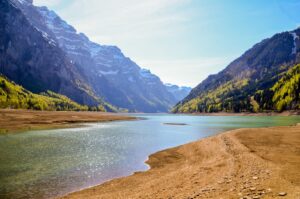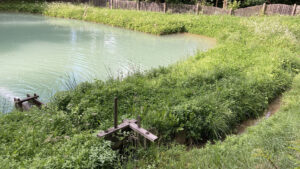Solving water use conflicts
Details
Full Title
Societal strategies to solve conflicts over water use(s)
Suggested by
Carlotta Sauerwein-Schlosser
The respective workshop calls for contributions regarding ...
- Socio-Ecological System Studies
- Innovation Studies
- Conflict Studies
- Area Studies
- Spatial Planning
Keywords
water use conflicts, water governance, adaptation, innovation
Type
Sessions
Description
Mountain regions are often referred to as “water towers”. This is because their topography and the resulting precipitation regimes and storing capacities ensure a year-round supply to the upper reaches of rivers, which in turn guarantees the water supply for the sourrounding area. However, the global increase in water consumption and intensified land use are causing “water stress” such as bottlenecks in the water supply. The situation is aggravated by the ongoing anthropogenic climate change which is impacting the water balance within mountain regions. The increasing pressure on water resources is consequently leading to accumulating conflicts over water distribution between different user groups in agriculture, tourism and other industries such as energy production. However, mountains regions, which have historically always been confronted with the issue of scarcity and the need to negotiate the demand for resources, provide clues as to how society can successfully adapt to changing environmental conditions. Against this backdrop of shifting hydrological conditions in mountain areas, this session will therefore focus on the interplay of cultural, legal, political and technical aspects of water use(s) and its transformation in the context of distribution conflicts.
Format/Concept
Building on the first session of this focus group which is dedicated to discussing the concrete impacts of droughts on socio-ecological systems, this session now invites participants to present societal adaptation strategies they have either discovered in their research on water resources or which they have examined in their own research. Regardless of whether you are a social scientist or an ecologist, the objective is to reflect together on the aspects which make these strategies succesful and transferable to other mountain regions.

